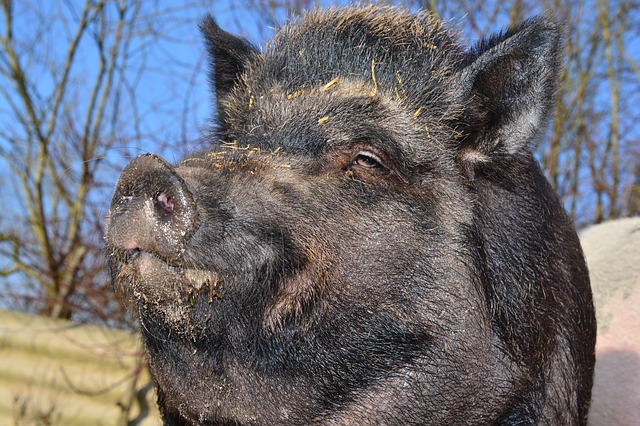By NewsDesk @bactiman63
The German Federal Ministry of Food and Agriculture (BMEL) is reporting additional cases of African Swine Fever (ASF) have been detected in Germany.

As of 1 November, the Friedrich Loeffler Institute had confirmed 123 cases – all of them in wild boar. Domestic pig herds in Germany are still free of ASF.
Federal Minister Julia Klöckner announced the first case on Thursday, September 10, which was confirmed by the Friedrich Loeffler Institute.
The Federal Ministry of Food and Agriculture:
- has activated the central crisis task force for animal diseases
- is in close contact with the European Commission and
- is in discussion with significant trading partners outside the EU in order, as far as possible, to maintain exports from ASF-free areas.
Besides carrying out extensive preventative and awareness-raising measures, the BMEL has also taken pre-emptive action to prepare for this emergency. The BMEL has amended the German Animal Health Act and the Federal Hunting Act to ensure that the competent authorities are in a position to issue the following orders in the event of an outbreak:
- restriction of passenger and vehicular traffic within specific areas.
- cordoning off of a specific area.
- hunting restrictions or bans.
- restrictions or bans on the use of agricultural land in order to prevent wild boar from migrating.
- establishment of shooting lanes and intensified search for dead game to minimise infection risks for healthy wild boars.
- possibility to commission third parties (e.g. professional huntsmen or forestry administration staff), where necessary, to undertake intensified hunting.
African Swine Fever (ASF) has appeared in many different EU countries since 2014. This animal disease, which is of great relevance for pigs and wild boar, is spreading rapidly across Europe – from countries bordering the EU to the east.
ASF is most prevalent in countries in Sub-Saharan Africa. It is supposed that ASF was introduced into Georgia from Africa. In June 2007, the first ASF outbreaks were reported in Georgia. It is supposed that these outbreaks were caused by the illegal disposal of food waste containing the ASF pathogen. Subsequently, ASF spread through Georgia, and from there it continued its path westwards.
The introduction of the ASF virus into Sardinia in 1978 has led to recurrent outbreaks in domestic and wild boar in Sardinia ever since. It has, however, been possible so far to prevent the disease from spreading beyond the island.
Since ASF was first detected in wild boar in the Czech Republic in June 2017, it has been possible to contain the ASF outbreak in the Czech Republic by taking strong measures, leading to the Czech Republic declaring in October 2018, in accordance with the requirements of the World Organisation for Animal Health (OIE), that the outbreak of ASF had been eradicated. Since February 2019, the Czech Republic has been considered free of ASF in accordance with EU rules as well.
Schistosomiasis case reported in Germany, Travel history to Corsica
On 13 September 2018, ASF was detected in dead wild boar n the Belgian province of Luxembourg – in the tri-border area of France, Luxembourg and Belgium, about 60 kilometres from the German border. Restricted zones were established and other measures taken, for instance the construction of wildlife fences to isolate the outbreak, which only affects the wild boar populations. The Belgian authorities have so far succeeded in containing the disease within the restricted zones, thus preventing a spread of the disease to domestic pigs.
Since 14 November 2019, cases of ASF in wild boar have also been detected in western Poland. The first outbreaks occurred around 80 kilometres from the German-Polish border. After further cases near the German-Polish border, a first case was confirmed in Brandenburg on 10 September 2020 in a wild boar, and subsequently more cases were confirmed in wild boars within the designated zone at risk.
African Swine Fever is a severe viral infection which only affects pigs (domestic and feral pigs) and is fatal to them. The disease does not pose a risk to human health.
- Tennessee: Zoo Knoxville reports SARS-CoV-2 positive Malayan tiger
- Peru: COVID-19 cases top 900,000, 1st diphtheria case in Lima in 20 years
- Michigan COVID-19 situation continues to constitute an epidemic, Restrictions defined
- UK COVID-19: Cases top 1 million, Boris Johnson says ‘You must stay at home’
- Halloween and COVID-19: Mitigating exposure risk
- Chagas disease: Research shows stronger but less frequent drug doses could be key to cure
- Ontario: Salmonella outbreak linked to the Barakat restaurant in Sarnia

